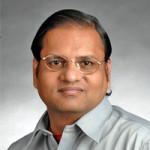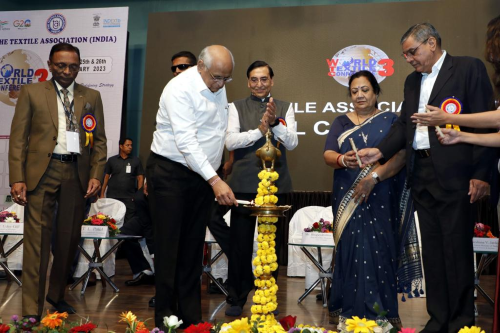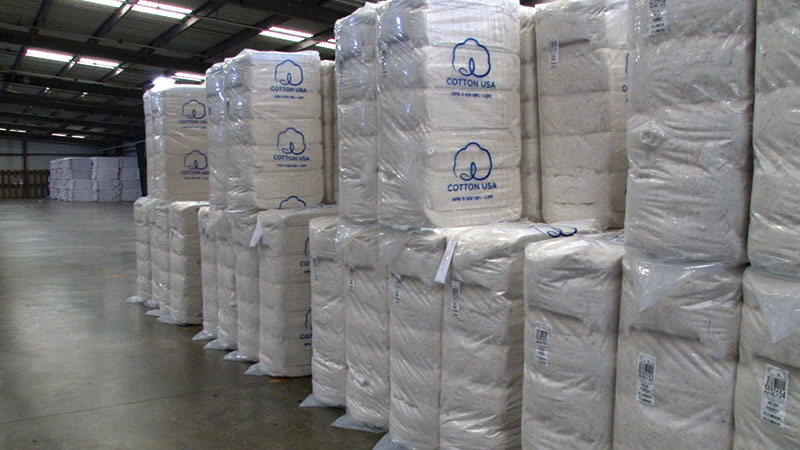World Textile Conference Offers Symphony of Discussions
Global textile industry stakeholders gathered recently in Ahmedabad, India for the World Textile Conference-3, a technology symphony to deliberate the way forward for the textile sector.
Over 800 delegates representing multiple counties including India, United States, Germany, Switzerland, South Africa, and Uganda participated in the event, organized by Textile Association (India) [TAI] and focused on the entire textile value chain from cotton to industrial textiles to marketing.
“We have organized this major event to be of service to the global textile sector in this critical time period,” stated Mahendrabhai Patel, Honorary Secretary of TAI.
Honorable Chief Minister of Gujarat inaugurated the World Textile Conference by lighting the lamp (Photo: S.Ramkumar)
The conference received the highest attention and was inaugurated by Honorable Bhupendrabhai Patel, Chief Minister of the State of Gujarat, in the presence of Honorable Mrs. Darshana Jardosh, Union Minister of State for Textiles & Railways, India. Tony Fragnito, President of the USA-based Association of the Nonwoven Fabrics Industry (INDA) was also in attendance.
As is the case with Beethoven’s Fifth Symphony set on four movements with vibrancy, tempo, and melody, the conference focused on four notes:
- Economy and the Textile Sector
- Growth and Fiber Balance (natural vs. synthetics)
- Sustainability and Innovation
- Training the Next Generation and Research.
“Growth in manufacturing is happening in the APAC region and India is important in this equation,” stated Bryan Haynes, Technical Director of Global Nonwovens for Kimberly-Clark.
“The post COVID-19 era is experiencing the shift in global growth equation, supply chain issues, and skilled labor issues. Hence there is a need to re-strategize,” stated Dr. P.R. Roy, former CEO of Arvind Group and Founder of Diagonal Consulting in Ahmedabad.
Leaders from leading fiber companies such as Indorama and Reliance discussed the availability of fibers for the Indian industry, which will require about 20 million tons in the next three to four years. Effective utilization of resources like fibers is critical for the sector. A presentation from Cotton Council International focused on the services provided to better utilize United States cotton.
The need to collaborate more with institutes of research and higher learning has become important to gear-up innovation. “We focused on obtaining more industry participation in this event,” stated Tulsibhai Patel, Vice President of TAI. “Forty different companies ranging from fiber to hygiene products participated in this conference.”
Major themes that occupied most discussions revolved around fiber needs, sustainability, plastic issues, technical textiles, and modernization. “India needs to grow big in technical textiles and plan strategies for Indian companies to penetrate into this burgeoning sector,” opined Nirav Shah, Co-Founder of Diagonal Consulting.
“The textile sector needs to focus now on modernization such as improving the quality of cotton, aiming at contamination free fibers instead of expansion,” stated Velmurugan Shanmugam, General Manager of Aruppukkottai-based Jayalakshmi Textiles.
An important theme discussed again and again like repeating motifs in a concert was the need for a skilled next-generation workforce and creating more awareness on emerging technologies.
“The Indian textile sector needs more information on practical knowledge and project details on technical textiles,” stated Gandhiraj Krishnasamy, Honorary Secretary of the South India Unit of TAI.











